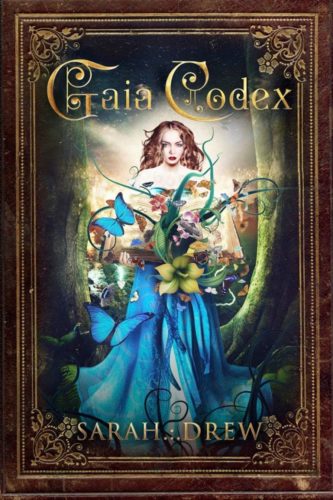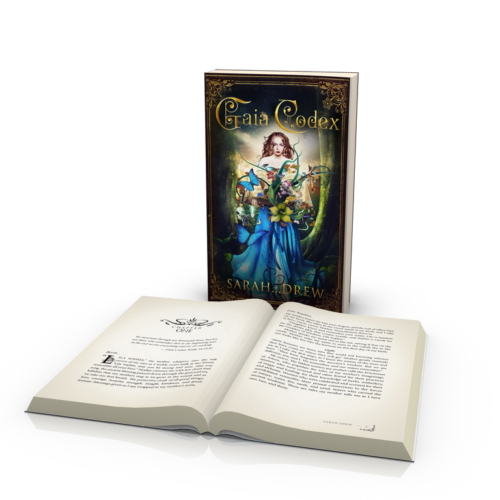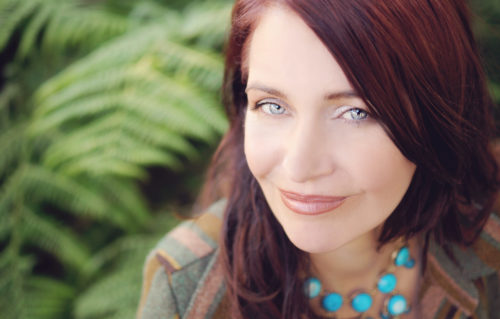On a blustery day this past November, I headed out to see a conversation with author Sarah Drew and futurist Schuyler Brown at Deepak HomeBase for the launch of Drew’s fictional novel GAIA CODEX: A New Feminine Mythology (Illuminating Culture and Remembering A Sacred Earth). The invitation had come via my mother back in California, a sound and light healer and founder of S.O.A.R. Women’s Leadership Initiative (Sounding Our Authentic Resonance). Over the years, few of my mom’s colleagues had cross-pollinated with my work in the field of “Fine Arts.” Somewhere around my Saturn return, I broke my foot and landed back under my mom’s roof. For several, long months, I did a lot of seated yoga and began to explore her library of books on the Divine Feminine. I was circling back to my roots, not only the powerful priestesses of the “Blessed Coast” reclaiming the divine feminine arts, but to the Momma – my own, and the Mother Earth. How I could have missed the ground beneath my feet for so long – I don’t know.
Fast forward to the now: Amidst the barrage of daily email blasts from progressive arts, non-profit organizations and individual artists crowding my inbox after a solid decade of networking in NYC, the words “A New Feminine Mythology” literally leapt off the screen – and left a powerful stain on the psyche. I had the strong urge to go to the book talk. I didn’t know Drew was a religious studies major at UC Berkeley who had done groundbreaking thesis work on “Technology and Consciousness,” or that she had been one of several lead curators of the global wisdom archive Sacred Agent, which with a five-million dollar endowment, documents 5000 years of collective human wisdom; or that she had been a Butoh dancer for Philip Glass. I pretty much just tucked her away in that drawer labeled “mom’s friends.” Running into the comrade priestess and pastor Lainie Love Dalby before the event assured me I was in good company. Astrologers and mystics and all breeds of light-keepers and peace-bringers filled the seats of the HomeBase lounge. As Sarah Drew opened with a powerful, sung incantation, I knew I was right where I needed to be. I felt hot tears welling up in my eyes. Reading the book produced the same kind of woozy, déjà vu splendors, each word caressing me like a butterfly landing on a rose.
As Sarah and Schuyler’s dialogued dropped into a nice rhythm, their mutual boisterous resonance with the book’s story was infectious. I felt touched and moved as they introduced a new novel containing “jewel seeds of planetary healing,” a story about “an ancient lineage of women holding regenerative codes for the planet.” I could feel the simultaneous shivers of awareness move like waves through the awestruck crowd. Schuyler Brown (a futurist, facilitator, and communications consultant dedicated to the emergence of truly regenerative commerce on the planet) explained that the book was “fiction,” though with a chuckle. “The more we exercise our creative impulse, the more conscious culture becomes.”
The two women talked about our society of disconnect and how, as women, we are hungry for new stories and new mythologies that honor the Goddess in her many forms. “A web of wounds, a web of women – we all carry a piece of the solution,” Schuyler mused poignantly as the conversation soared on into the importance of sisterhood in the new paradigm. Sarah chimed in: “There’s a collective resonance right now that can bring well-being and change.”
“There’s a transmission. It’s a very vivid and sensual book,” went on Schuyler, clearly the perfect spokesperson for GAIA CODEX. She explained why her favorite character was ‘Old Woman’: “I wanted to stay at her house forever,” said Schulyer, “Our culture is in desperate need of wise elders.” The two talked about the ways in which older women – not coincidentally, right as they reach the peak of their spiritual power – become ostracized by society.
Although Lila Sophia (the lead) and Theo (her love interest) are the focus of much of the book, the real main character, Sarah explained, is GAIA herself. Call it fractal consciousness or sacred geometry, Sarah explains that GAIA CODEX is an nth dimensional web holding “all that has occurred and all that will occur.” One who navigates the web is “able to access these full jewels of information that are stored there in the Mother GAIA. Her many sacred texts are stored right there within her rocks and trees. Our culture is now beginning to remember.”
Schuyler talked about how reading this book coincided with a period of personal growth, “reintegrating a dark, earthy feminineness I was born into…the book was a portal, stepping into something very deep within myself.” GAIA CODEX is all about remembering, and that’s just what I felt as the greater meanings embedded in the text reverberated around the room. The transcultural priestesses of the book, called the Priestesses of Astera, are practitioners of over 64 “Feminine Arts.” Each woman has several she cultivates and anchors over many lifetimes as the transvibrating soul remembers. Some of these arts include alchemy, astrology, cooking, mapping the stars. “How do we create cultures that remember?” asks Sarah.
As the conversation galloped forward, things moved into the tech world and its intersection with humanity’s spiritual evolution. Sarah was fresh from a lecture at Google, where she had spoken about how to be mindful of where new technologies are coming from … does it benefit many beings? Schuyler explained how the tech world is currently “crazy about empathy” and ironically “teaching humans to be humans so we can program the machines correctly,” before moving forward and asking Sarah how the rise of the divine feminine is keeping pace with tech. What new technologies did she envision? Sarah replied that the main character of the book, GAIA, was a “new technology.” GAIA recalls a most (ancient) archetype perfectly suited to our times: “The Mahadeva, Goddess of thousands of names and forms, is sisterhood, the archetype of our times, and the web of circles, flower of life… the technology of the circle is an activator for knowledge and healing, an nth dimensional web holding the planet.” Sarah explained that at the core of the book are Buddhist teachings she cultivated as a student of Ryosen-an, a 900 year-old temple in Kyoto, Japan. She likewise spent years reading sacred texts and traveling the world “from the high plateaus of Tibet to the jungles of the Amazon” to gather cultural stories, all of which she has weaved into the powerful narrative of her book.
Not surprisingly, what began as the impulse of one women – a self-published manuscript of 100 passed out to women leaders facilitating circles (Sarah asked them to pray with it) – has snowballed into a movement. Women bound and embroidered their copies, and now new women’s circles have formed in response to the text. There is a Facebook community where at least one post I followed clocked close to 12K likes, 2,000 shares and hundreds of comments like: “Brilliant,” “Amazing” and “I can’t put it down.” The book is also slated to eventually become a movie.
As the evening wrapped up, questions rang out from the audience passionately, “What does it meant to be a priestess in today’s world?” to which Sarah responded, “It’s a deep embrace with beloved – knowing – we are holders of ancient traditions, visionaries, catalysts, lovers…”
And all that, before I even opened the first page of the book. A very thorough list of endorsements published at the end of the tome left me feeling overwhelmed in the best way: “I was transported into an altered state…every word echoed through my cells and awakened knowings and memories of the ages” (Cynthia Jurs). “I felt my DNA changing” (Kristy Sweetland). “This book is an invitation to know ourselves as carriers of the evolutionary impulse of humanity” (Samantha Sweetwater). Where was I to enter this story, this dialogue, this movement? What more could I add?
Much like our speaker Schuyler Brown, a fellow yogi, I was rarely interested in fiction. Nonetheless, Drew’s juicy song of songs caliber love story delighted me through each and every page. Like many readers, I, too, felt my cells activating and awakening and remembering… responding to a call of action for us priestesses to own our power and heal humanity and the earth. The pages of GAIA CODEX are saturated with sweet descriptions – fragrant hues and melodious textures. Sensations so powerful arise that one might mistake themselves for being (as Drew calls it) “in the dreaming.” Much like the web of life, GAIA CODEX keeps the reader in thrall to its many twists and turns.
I am especially excited about GAIA CODEX’s application for young women and girls. I thought back to the girl in me that grew up reading shelf-loads of Sweet Valley Twins books. The snaking rainbow their pastel bound edges made on the top shelf of my closet was as beautiful as the blue-eyed blonde haired cis-gendered twins the books told simple stories about. Books that inspired me to want to be thin, popular and have a boyfriend. Want a mother that always had piping-hot chocolate chip cookies on the counter after school in our safe little suburban fantasy. Food didn’t come from the great fiery navel of the earth; it came from the corporate lands of fat-free, sugar-free and calorie-free. How ironic that the word “free” punctuated so heartily the mental prison many many girls of my generation created around their bodies and food. I remember the day my shrewd honors English teacher looked me dead in the eyes and said “Katie, this is the last time.” She refused to let me write another book report based on this dull set of mediocre YA novels. Thank Goddess she did. Unfortunately, it was too late to stop the seedlings of self-loathing that blossomed into a full-blown eating disorder and other glittering acts of self-sabotage and neglect of my Beingness. I would come to know in a very personal way how embracing the trappings of socially appropriate femaleness in this culture is not only self-defeating and damaging, but that it produces deadening effects on the transvibrating soul. Our culture of stories dearly lacks a reverence for the sacredness of total women – maiden, mother and crone. There’s a direct link here to our respect for women as mothers and for the Mother Earth.
GAIA CODEX is brilliant in the way it collides what must be thousands of local expressions of the divine the world over, wise words celebrating the profundity of life (and death) embedded in the wisdom of the ages. Knowing ourselves in the micro-pleasures of our body temples and the macro-realities of our holographic embodiments in time and space, with the All – walking in grace on this Earth. GAIA CODEX is ancient and contemporary, scintillatingly sexy and sacred. Its words honor our true humanity and keep us spiraling through the Great Mystery unfolding for all time. Theo, the novel’s luscious male romantic lead, taunts us for 65 chapters before arriving as “power ripples through his limbs” on page 295. We’re in the deep heart of the rainforest, and he and Lila Sophia consciously conceive a child. “…If you experience within yourself or deep within the eyes of another this Eternal Garden of the Soul, say yes and surrender everything” (Gaia Codex: Node 444.76.541) Watch out world: This book could make you woke. Are you the bud of a priestess breaking open or the old woman that comes to her and yet again says goodbye?


